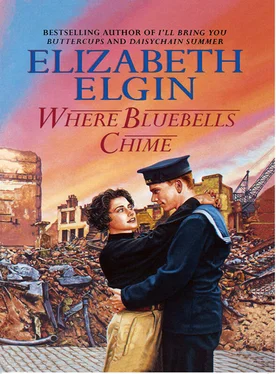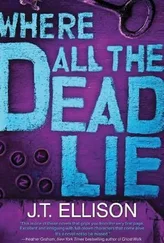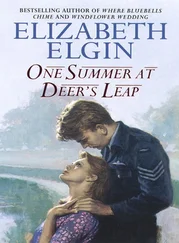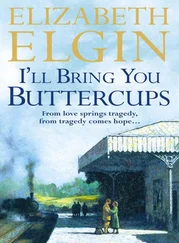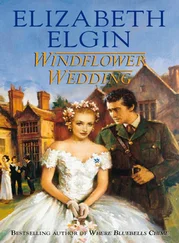Then she salved her conscience almost at once by remembering that Sunday was to be her official birthday, with Aunt Julia calling for Reuben and bringing him to Keeper’s in her car and the two of them staying for a birthday tea. It was good of Aunt Julia, come to think of it, since petrol was rationed now, and no one got half enough.
But yesterday had started badly. She had awakened and thought that this day next year should have been her wedding day and it wouldn’t be, now, because of the bloody awful war. She had known with dreadful certainty it would not. Keth would not be home, now, though she knew she should be glad he was in America and out of harm’s way. There was no way, now, of crossing the Atlantic unless you were a merchant seaman, sailing square-packed in convoys or unless you were in the Air Force and could fly across in a warplane.
Civilians could no longer buy a sailing ticket or a seat on a flying-boat, because all transatlantic liners were troopships, now, and flying-boats had been commandeered by the Air Force and painted in the dull colours of camouflage to be a part of Coastal Command. Besides, the Atlantic was a dangerous place to be, packed with German submarines and battleships sailing where they wanted, doing exactly as they pleased because Britain was still licking its wounds after Dunkirk and could do little to stop them.
An aircraft flew low overhead, crashing into her thoughts. She could not see it through the denseness of the branches above her but she knew it was one of the bombers from the aerodrome at Holdenby Moor. There were two squadrons there now and last night they had flown over Germany again, dropping their bombs – an act of defiance, really, when everything was in such a mess and everyone worrying about the invasion. But when it came people would make a fight of it, though in France they hadn’t been given much of a chance. Hitler’s armies had just marched on and on …
But we had the Channel – the English Channel – and Hitler had to cross it first. And we had a navy, still, to help stop them, so perhaps it would be all right. Maybe the Germans wouldn’t come.
Daisy looked down at her watch. Mam wouldn’t be home from the canteen yet, nor Dada from his meeting. She squinted up at the sun dappling through the trees. Soon, when it reached the cupola of Rowangarth stable block it would start slowly to set. Blackout tonight would be at eleven o’clock and remain until daylight came about five tomorrow morning.
The blackout, Daisy frowned, was the strangest thing about the war, especially in winter when it began at teatime and lasted until long past breakfast time, next day. Last winter had been bleak and cold and very dark, and the blackout had taken a lot of getting used to. Stepping out into it, even from a dimly lit room, was like stepping into sudden blindness. So you stood there, if you had any sense, and gave yourself up the the blackness, eyes blinking until shapes could be picked out against the skyline. Shapes – outlines of buildings, that was, and trees – and especially in towns you stood still until your eyes could make out not only shapes but the white bands painted on gateposts and lampposts and telegraph poles and corners of buildings; unless you wanted a bloody nose or a black eye, of course, from walking into things you couldn’t see. ‘Bumped into a lamppost, did you?’ people would grin, with no sympathy at all for bruises or shattered spectacles.
But there would be virtually no blackout tonight because it was June and would hardly get dark because of that extra, unnatural hour of double summertime. She must remember to think about June evenings when the drear of November was with them.
Drew, her half-brother, had joined the Royal Navy. His last letter had been from signal school where he was learning to read morse. And when he had, he’d be sent to a ship and only heaven knew where he would end up.
Once, Daisy sighed, there had been six of them: herself and Drew and Keth and Tatiana, with Bas and Kitty over from Kentucky each summer and every Christmas. Her Sutton Clan, Aunt Julia called them.
They had been golden summers and sparkling Christmases in that other life, yet now Bas and Kitty could no longer visit, and Keth was staying with them because he had gone to university in America with Bas. And with Drew gone there was only her and Tatty left to remember how it had once been; how very precious.
Tatty was eighteen now, beautiful, and fun to know. She wanted to do war work, but her Grandmother Petrovska, who never ceased to remind anyone who would listen that she was White Russian and a countess, had forbidden it absolutely.
Poor Tatiana. And poor Daisy, who’d better be getting home to Keeper’s Cottage to tell her parents her secret. And when she told them, Mam would burst into floods of tears and Dada would shout and play merry hell so that Mam would have to tell him to watch that temper of his before it got him into trouble. And when Mam said that, Daisy would know that the worst was over and that Mam at least was on her side.
But oh, why had she done it – especially now?
Julia Sutton offered the letter to her mother, smiling indulgently. ‘I’m to thank you, Drew says, for the soap and chocolate, but he says you mustn’t bother now they’re rationed – but read it for yourself …’
‘No, dear.’ Helen Sutton placed a cushion behind her head, then closed her eyes. ‘My glasses are upstairs. Read it to me.’
‘We-e-ll – he says to thank you for the things you sent but you’re not to do it again because they can get quite a lot at the NAAFI in barracks. Soap, razor blades and cigarettes, too.’
‘Oh, I do hope he hasn’t started smoking.’
‘I hope so, too,’ Julia sighed. ‘It’s murder when you haven’t got one.’
Cigarettes were in short supply to civilians. Shops doled them out now five at a time – if you were lucky enough to be there, that was, when a cigarette queue started.
Julia smoked; a habit begun when she was nursing in the last war. She had carried cigarettes in her apron pocket, lighting one, placing it between the lips of a wounded soldier. And then came the day when she too needed them. Cigarettes soothed, filled empty spaces in hollow stomachs, became a habit she could not break.
‘And he says that when they aren’t in the classroom they are cleaning the heads – I think he means the lavatories – and polishing brass and the floors, too. It’s a stupid way to fight a war, Mother, if you want my opinion!’
‘Maybe so.’ Helen Sutton stirred restlessly. Talk of war upset her; talk of Drew being in that war was even worse. ‘But I’d rather he polished floors for ever than went to sea.’
‘He’ll be safer at sea than he’d be if he were flying one of those bombers from Holdenby Moor. Will Stubbs said they lost three last night.’ Such a terrible waste of young lives. ‘Anyway, once Drew has finished his course he’ll get leave, he thinks, before they find a ship to send him to. I suppose things are in a bit of a mess still, after Dunkirk.’
‘I don’t know why they took him if they don’t know what to do with him,’ Helen fretted.
‘They will, in time,’ Julia soothed. ‘We’ve got to sort ourselves out, don’t forget.’ And who could forget Dunkirk?
But her mother was growing old. It had to be faced. Before war came – before another war came – Helen Sutton had looked younger than her years, but now Julia worried about her. She seemed so frail lately; hadn’t eaten properly since Drew left three months ago. It was as if that Sunday last September when they knew they were at war again had turned her world upside down and she was still floundering.
‘He’ll be all right, won’t he, Julia?’
Читать дальше
